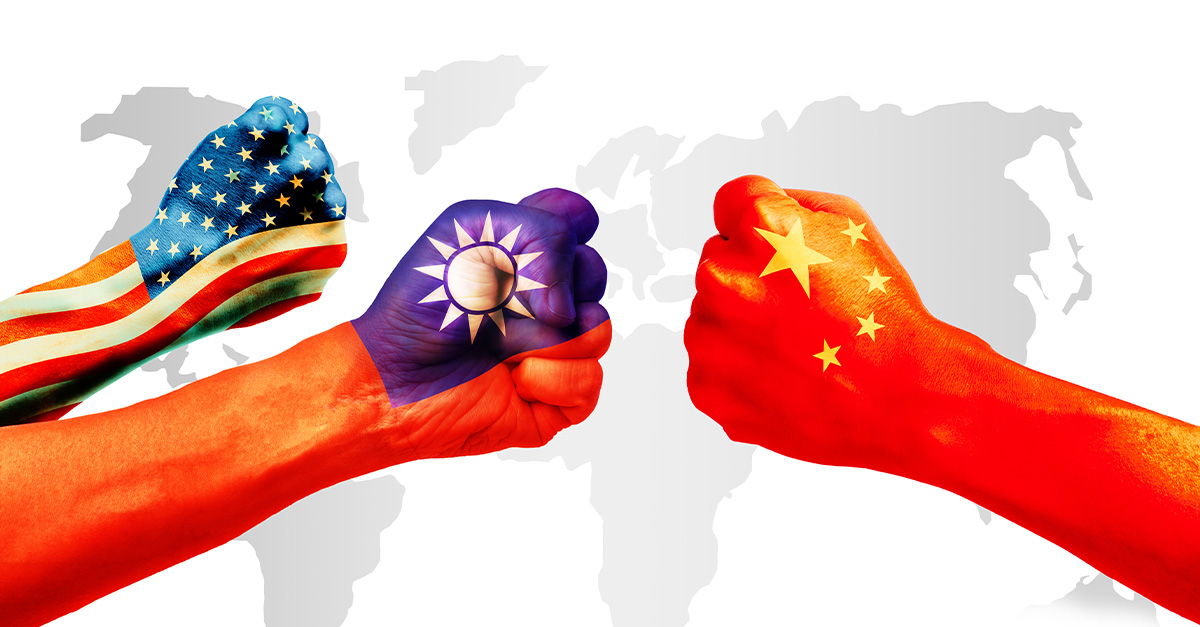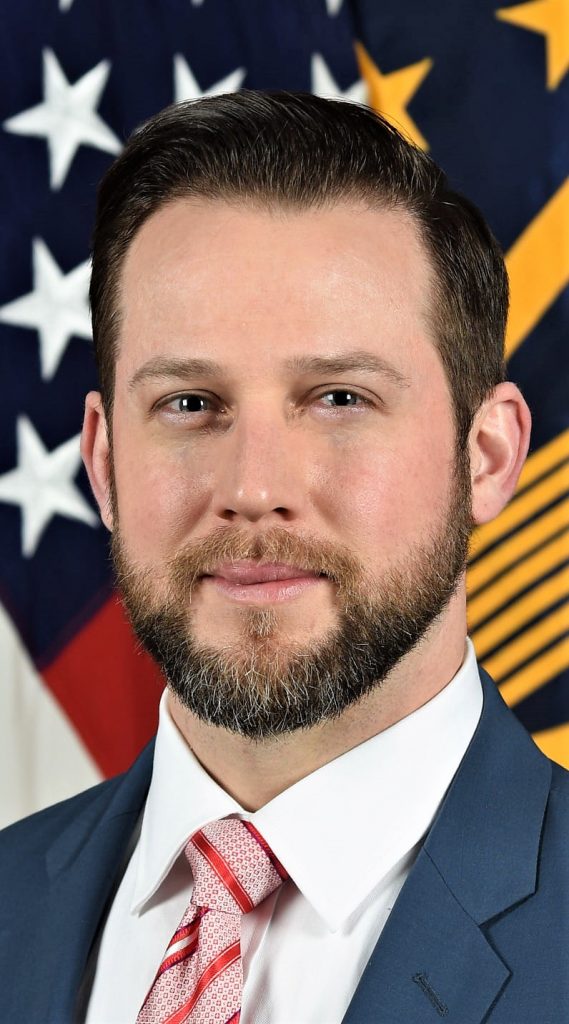


Get a free copy of Parental Rights & Education when you subscribe to our newsletter!

“This is the towering moral question facing the Biden administration: Will we continue to be not only a beacon of liberty, freedom, and justice in the world at large but also support our allies when the time comes?”
–William Wolfe
The Biden administration’s hasty departure from Afghanistan was an unmitigated disaster. Our decades long adversary, the Taliban, essentially strolled into Kabul without a fight. We lost 13 of our brave men and women in uniform in the last days of the failed campaign to attacks by suicide bombers. And, horrifically, the Biden administration reportedly killed civilians — not terrorists — in their attempted retaliation.
When push came to shove, the United States — the greatest nation in the free world — folded like a cheap suit. We abandoned our allies to a gruesome death, Afghanistan citizens to a brutal jihad rule, and embarrassed ourselves on the world stage. As a former senior official at both the Department of State and the Department of Defense, I was ashamed. The Trump administration’s policies, which I had the privilege of advancing, brought unprecedented peace to the Middle East. But in just two weeks’ time, the Biden administration squandered it like the prodigal son spent his father’s inheritance. Let’s be clear: This wasn’t a failure of resources. It was a failure of leadership.
While we all might like to think that the Afghanistan withdrawal was — and will remain — the lowest point in this administration’s foreign policy, that sadly might not be the case.
In fact, the next Afghanistan-level debacle already looms on the near horizon, though this time it’s on the other side of the Asian continent.
That’s right, the next Afghanistan might be Taiwan.
Now, many Americans may not even be aware of the current standoff that is heating up between the Communist-controlled People’s Republic of China (PRC) and the free “informal” country of Taiwan. But if you love liberty, then you need to pay attention to what’s happening with China and Taiwan.
Taiwan is a small but densely populated island nation on the other side of the world, far off across the Pacific Ocean. But don’t let its size or distance fool you: Taiwan is a bright beacon of democracy and one of the United States’ closest and strongest allies in the Asian theater. Taiwan, with its capital Taipei, is a breakaway country from mainland Communist China. Mao’s primary political rival, Chiang Kai-shek, fled to the island in 1949 — and the United States has supported Taiwan’s right to liberty and self-government ever since.
However, when the U.S. officially recognized the PRC in 1979, it complicated the relationship with Taiwan. Under the “one-China policy,” the U.S. doesn’t have official diplomatic relations with Taiwan but rather maintains a de facto recognition of its sovereignty. We are also its strongest regional ally and primary military weapons supplier.
As it stands today, the U.S.-Taiwanese relationship is governed by the aptly named Taiwan Relations Act, as well as other non-treaty documents known as the Three Communiqués and the Six Assurances. On the whole, these relationship-governing standards guarantee that the U.S. will respect Taiwan’s sovereignty and maintain arms sales. These commitments were repeatedly affirmed by the Trump administration. However, these commitments do not guarantee that the U.S. will intervene militarily if the PRC attacks or invades Taiwan.
Over the decades, Taiwan has established itself as one of the greatest defenders of individual rights and promoters of political and economic freedom in the world. According to The Heritage Foundation’s 2021 Index of Economic Freedom, it is actually the sixth-freest economy in the world, behind Singapore, New Zealand, Australia, Switzerland, and Ireland. Who is number seven, you might ask? The United States.
Former Secretary of State (and current Freedom Center senior fellow) Mike Pompeo was instrumental in furthering the U.S.-Taiwanese relationship. In the final weeks of the Trump administration, former Secretary Pompeo took the bold step of lifting restrictions on contacts between U.S. officials and their Taiwanese counterparts.
Taiwan’s thriving free market economy and robust defense of personal liberty stands in stark contrast to the regressive shadow cast by mainland Communist China. As such, Chinese Communist Party (CCP) officials have never been willing to fully recognize its independence. Their endgame is “reunification,” a euphuism for bringing Taiwan back under the crushing heel of their red boot.
Sensing weakness from the U.S., China has recently undertaken increasingly hostile actions directed against Taiwan. The New York Times reports that, earlier this month, “25 Chinese fighter jets, bombers and other warplanes flew in menacing formations off the southern end of Taiwan, a show of military might on China’s National Day, Oct. 1. The incursions, dozens upon dozens, continued into the night and the days that followed and surged to the highest numbers ever on Monday, when 56 warplanes tested Taiwan’s beleaguered air defenses.”
Brett Sadler, senior fellow for naval warfare and advanced technology at The Heritage Foundation, summarized the recent tensions in these stark terms: “Chinese military activity around Taiwan has risen to unprecedented levels over the last few months. Chinese warplanes have breached Taiwan’s air defense zone more than 150 times in just this last week.”
In response, the State Department issued a rather weak and ambiguous statement, noting that, “The United States is very concerned by the People’s Republic of China’s provocative military activity near Taiwan, which is destabilizing, risks miscalculations, and undermines regional peace and stability.”
In contrast to the platitudes about “concerns” from the Biden administration, the freely and fairly elected president of Taiwan, Tsai Ing-wen, recently published a rousing essay in Foreign Affairs as part of her bid to rally support for her nation’s freedom and bolster relationships with its allies. In it, she conveyed a near-perfect encapsulation of the critical role that Taiwan plays in the larger region and on the world stage, writing:
“Taiwan’s refusal to give up, its persistent embrace of democracy, and its commitment to act as a responsible stakeholder (even when its exclusion from international institutions has made that difficult) are now spurring the rest of the world to reassess its value as a liberal democracy on the frontlines of a new clash of ideologies. As countries increasingly recognize the threat that the Chinese Communist Party poses, they should understand the value of working with Taiwan. And they should remember that if Taiwan were to fall, the consequences would be catastrophic for regional peace and the democratic alliance system. It would signal that in today’s global contest of values, authoritarianism has the upper hand over democracy.”
This is the daunting foreign policy challenge at hand, ensuring that the global contest of values — between freedom and authoritarianism — doesn’t fall by the wayside. This is the towering moral question facing the Biden administration: Will we continue to be not only a beacon of liberty, freedom, and justice in the world at large, but also support our allies when the time comes? A friend in need is a friend indeed. Taiwan — and all defenders of individual rights around the world — needs America to be that friend in its time of need. The time is now and coming. Appeasement will not suffice.
Make no mistake about it: The Red Dragon wants to swallow Taiwan whole and drag it back into the Communist collective, simultaneously snuffing out both its status as a tenacious light of liberty and the freedoms of its residents.
Now is not the time for the United States to stick to plain platitudes about what makes us “concerned.” If China invades Taiwan and we stand idly by, it will be a catastrophic display of weakness on the world stage. No nation in their right mind would take an alliance with us seriously.
As Mark Tooley recently highlighted in World Magazine, “There is a deep spiritual and moral significance to Taiwan’s freedom and independence. The little island nation symbolizes the vitality and virtue of a free people against China’s increasingly repressive and aggressive dictatorship.”
He’s absolutely right: Taiwan is a symbol of hope that stands across from the would-be global hegemonic power of the CCP.
As such confrontations intensify, the balance of power around Taiwan is fundamentally shifting, pushing a decades-long impasse over its future into a dangerous new phase. While Taiwan has no intention of starting a war with China, as a free nation, it is entirely committed to defending its self-government and refuses to bow to CCP threats.
The U.S. must stand boldly with Taiwan against the CCP. The world is indeed watching, wondering if being a U.S. ally means anything at all anymore. In order to assure the world and our allies that the U.S. is still committed to defending democracy and liberty, we must make it clear to the CCP that we will not tolerate their bullying. The U.S. should do everything it can right now to ensure Taiwan has all the necessary military weaponry to rebuff any attempted invasion from the mainland.
Just like the Trump/Pompeo State Department did in the face of an aggressive Iran with our Middle Eastern partners, the Biden administration should consider using emergency arms sales authority if needed. Or, the Pentagon could consider financing a major lend-lease program to build up Taiwan’s capabilities across the board. Most importantly, however, is that the United States maintains its obviously superior military strength and capabilities over China — and ensure that the CCP knows this — so they will be deterred from attacking at all. Because the last thing the war-weary citizens of our own nation want to see is our young soldiers dying in combat in the Pacific Theater.
As it stands today, the U.S. must do two things now, do them well, and with strength: 1) Do everything we can to deter war between China and Taiwan, and 2) Make it abundantly clear to the watching world that we stand with our allies.
Is the current administration up to this task? Only time will tell.

A 10-year veteran of the conservative political movement, William Wolfe served as a senior official in the Trump Administration, both at the Pentagon and the Department of State. Prior to his service in the administration, he worked for Heritage Action for America and as a congressional staffer for three members of Congress, including the former Rep. Dave Brat. He has a B.A. in History from Covenant College and is currently finishing his Master of Divinity at The Southern Baptist Theological Seminary.
Christian conservative news and issues that matter. Curated just for you!
